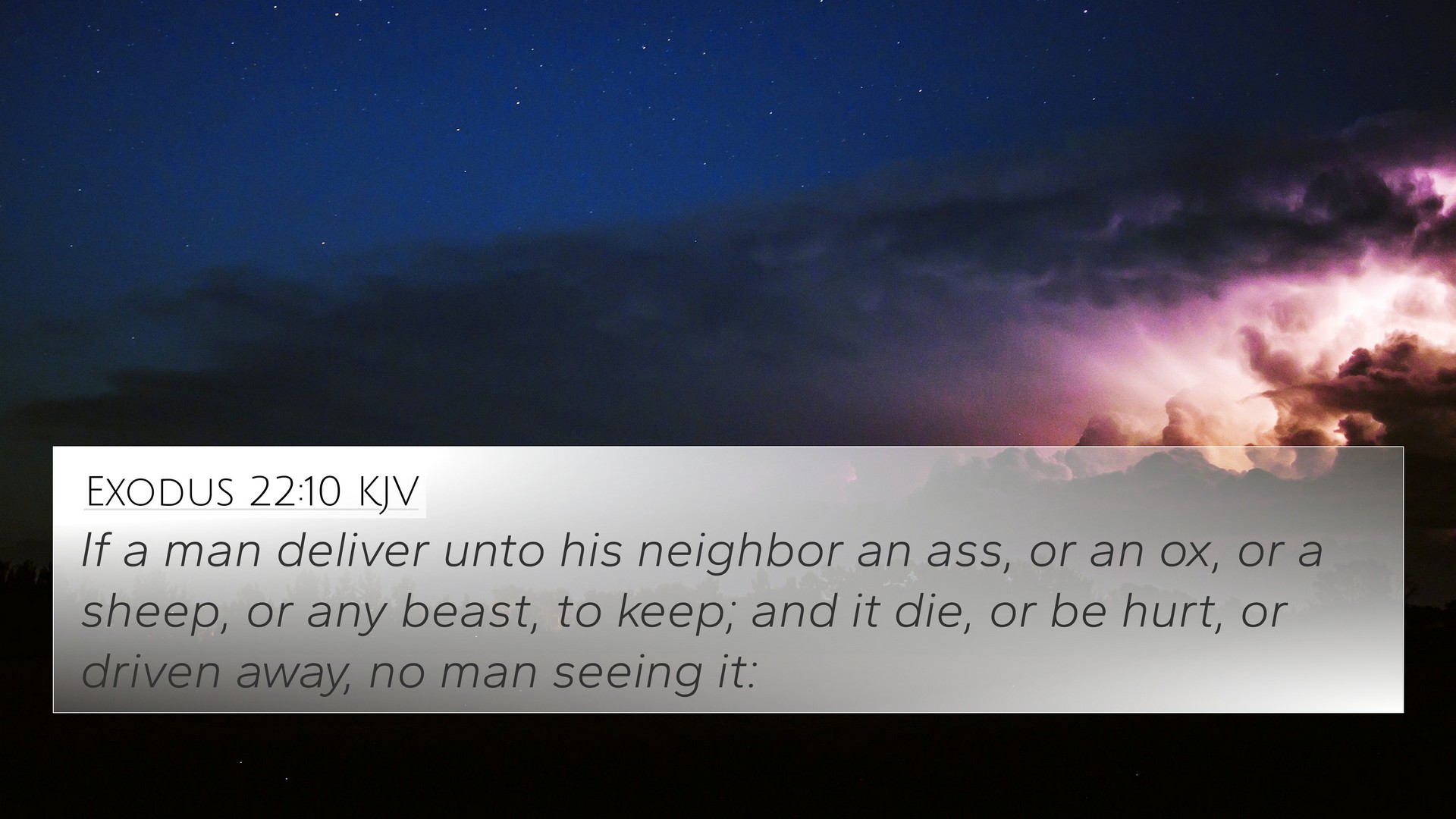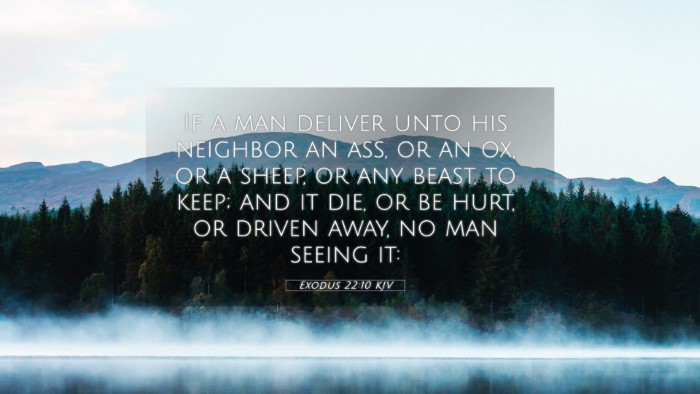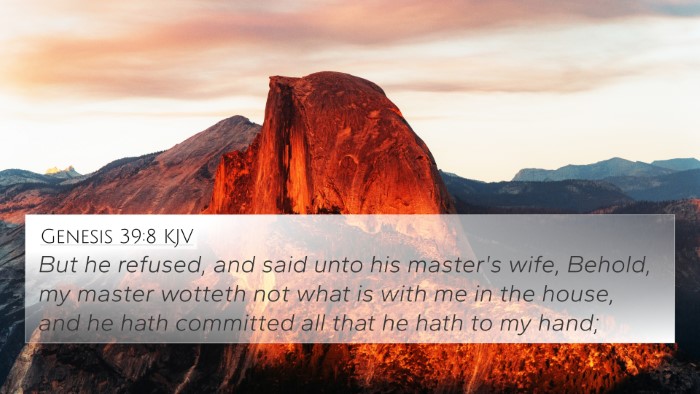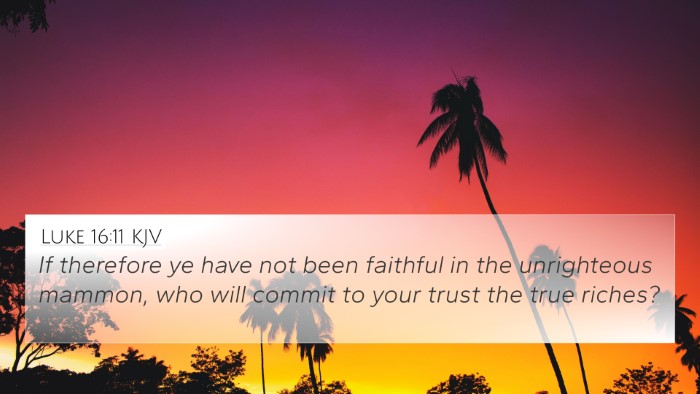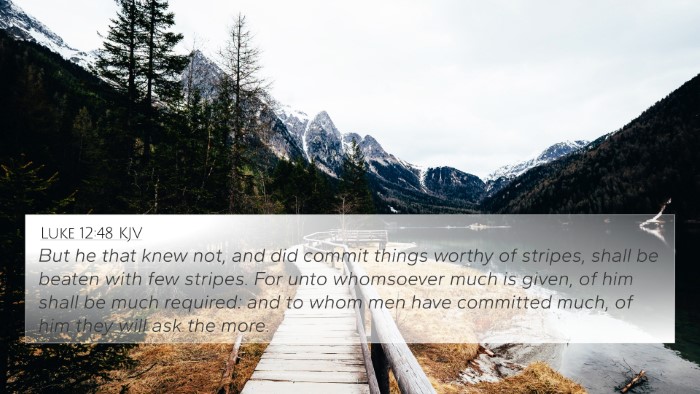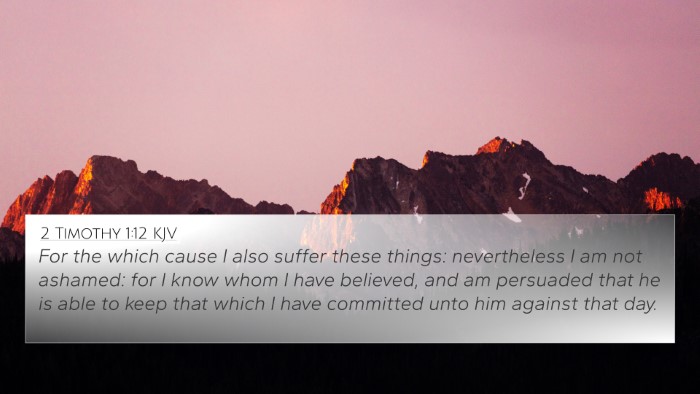Understanding Exodus 22:10
Exodus 22:10 states: "If a man delivers to his neighbor a donkey, an ox, a sheep, or any beast to keep, and it dies or is hurt or is driven away, and no one sees it," This verse addresses the issue of responsibility and trust in relationships, particularly in the context of borrowed or entrusted animals.
Commentary Insights
- Matthew Henry:
Henry emphasizes the importance of trustworthiness in our dealings with others. The text illustrates that there are conditions under which a person is not held accountable if an entrusted animal is lost. The core message is that there should be fair compensation when care is taken, demonstrating a balance between personal responsibility and circumstances beyond control.
- Albert Barnes:
Barnes highlights that the verse underscores the significance of evidence in claims of loss. The lack of witnesses can complicate matters of accountability. This brings to light a broader principle of justice that requires clear justification for disputes, emphasizing the need for integrity in relationships.
- Adam Clarke:
Clarke notes that this law reflects a deeper theological concept of stewardship and accountability before God. It is not merely about the animal but a person's integrity and how they uphold divine law by treating others with fairness. His commentary suggests that these principles can be applied to our interactions in modern contexts.
Bible Verse Cross-References
Exodus 22:10 connects with various other scriptures that explore themes of stewardship, trust, and accountability:
- Leviticus 6:2-5: Discusses the responsibilities of a person who has wronged their neighbor, reinforcing the need for restitution.
- Proverbs 27:23: Advises on the care one should take in knowing the state of their flocks and herds, emphasizing stewardship.
- 1 Peter 5:2-3: Encourages leaders to take care of their charges, showing a commitment to those they are responsible for.
- Luke 16:10-12: Jesus speaks about being faithful in little things as a reflection of one’s ability to handle greater responsibilities.
- Matthew 18:15: Offers a principle of resolution in conflicts, relevant to managing disputes arising from lost property.
- Romans 14:12: Emphasizes personal accountability before God, which connects to the idea of responsibility in Exodus 22:10.
- Galatians 6:5: Encourages carrying one's own burden, linking personal stewardship with mutual responsibility amongst believers.
Thematic Bible Verse Connections
The implications of Exodus 22:10 can be further explored through various thematic connections:
- Stewardship: The responsibility towards possessions, seen in Genesis 1:28 and Matthew 25:14-30.
- Justice and Fairness: Principles found in Micah 6:8 and Proverbs 21:15, showing God’s desire for righteousness in human transactions.
- Trust and Relationships: Reflected in Ecclesiastes 4:9-10 and Proverbs 17:17, highlighting the bond of trust that must be maintained in communal life.
Tools for Bible Cross-Referencing
Understanding and utilizing cross-references can greatly enhance our study of scripture. Here are some effective tools for Bible cross-referencing:
- Bible Concordance: A tool that helps locate verses based on keywords.
- Bible Cross-Reference Guide: Specialized references that connect related verses.
- Cross-reference Bible Study: A method for deepening understanding through comparative analysis.
Conclusion
Exodus 22:10 serves not only as a legal mandate within the Old Testament but also opens up a broader conversation about responsibility, trust, and fairness within human relationships, impressing upon us the importance of integrity both socially and spiritually. By exploring its meaning through various commentaries and cross-referencing with related verses, we gain deeper insights into the divine principles underpinning our interactions.
For anyone studying the interconnectedness of scriptures, understanding Exodus 22:10 can be crucial. The examples and cross-references provided here serve as a foundation for further exploration into the scriptures, revealing the rich tapestry of biblical wisdom that speaks on accountability and stewardship.
